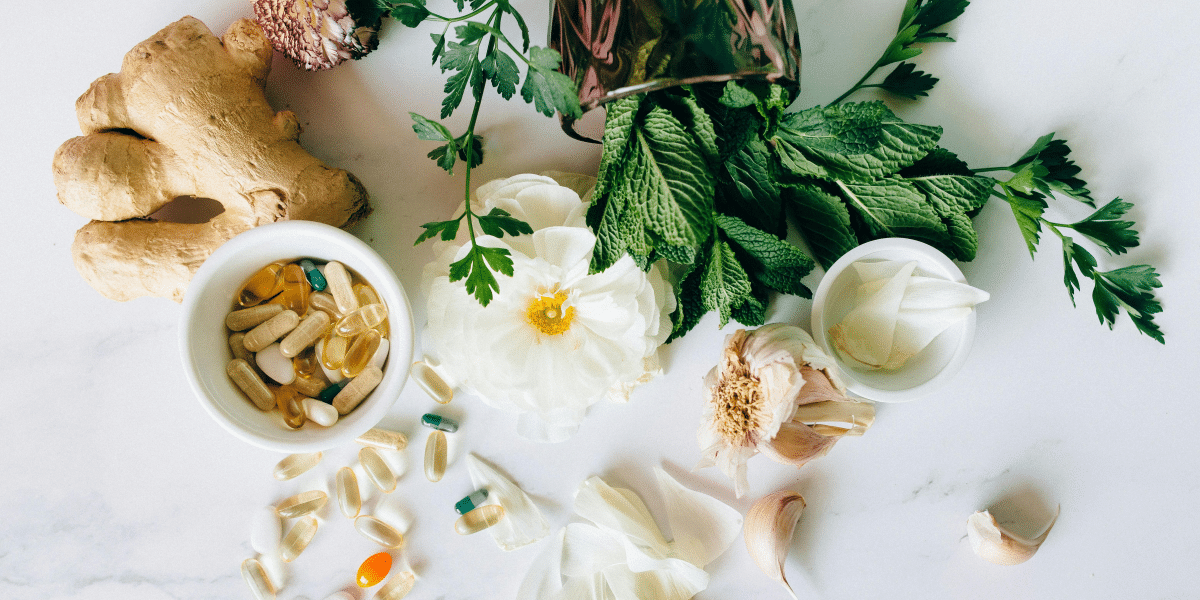By: PR Fueled
Herbal products have become popular as people seek natural solutions for enhancing their health and wellness. Integrating these products into modern health practices reflects a shift towards more holistic approaches. This article explores how herbal products are essential to contemporary health routines and provides practical ways to incorporate them into daily life.
Daily Supplements and Wellness Routines
Herbal supplements have become a staple in many wellness routines. People use herbal capsules, tinctures, and teas to support their health. For instance, turmeric supplements are widely used for their anti-inflammatory properties, helping to manage joint pain and improve overall well-being. Similarly, ashwagandha is famous for its stress-relieving benefits, making it a regular addition to daily supplement regimens.
Incorporating these supplements is straightforward. Start your day with a glass of water mixed with a herbal tincture, or add a few drops to your morning smoothie. Capsules can be taken with meals, ensuring you receive the benefits without disrupting your daily activities. Consistency is vital, so make these supplements a part of your everyday habits to see the results.
Herbal Remedies for Energy and Vitality
Herbal teas offer a simple yet effective way to enjoy all the benefits of herbs into your daily life. These teas can address various health concerns, from promoting relaxation to boosting energy levels. Chamomile tea, for example, is excellent for winding down in the evening, while green tea provides a gentle energy boost and supports metabolism during the day.
Creating a daily tea ritual can enhance your overall wellness. Drink a cup of chamomile tea before sleep to help you relax. In the afternoon, replace your coffee with green tea to maintain steady energy levels without the jitters. Experimenting with different herbal blends can help you find the perfect tea for every moment of the day.
Kratom products have gained attention for their potential benefits in energy enhancement. Kratom is used by some for its analgesic and stimulating effects. When sourced from reputable vendors, kratom can be a valuable tool if you seek a natural energy boost.
To safely incorporate kratom into your routine, start with a low dose. Mixing kratom with a beverage like tea or juice can make consumption easier. Always source kratom from reliable vendors to ensure product quality and safety.
Herbal Skincare and Beauty Products
The beauty industry has embraced herbal ingredients, incorporating them into skincare and cosmetic products. Herbs like aloe vera, lavender, and calendula are renowned for their soothing and healing properties. These ingredients are now found in many products, from facial cleansers to serums and masks.
Choose products that highlight these natural ingredients to integrate herbal skincare into your routine. A nightly routine that includes cleansing with a lavender-infused cleanser, followed by an aloe vera moisturizer, can improve skin health and appearance. Herbal face masks can be used weekly for an extra boost of nourishment and hydration.
Fitness and Recovery
Herbal products also play a role in fitness and recovery. Adaptogens like ginseng and rhodiola help enhance physical performance and endurance, making them popular among athletes. Post- workout, herbs such as arnica and turmeric reduce muscle soreness and inflammation.
Incorporating these herbs into your fitness routine can optimize performance and recovery. Pre- workout, consider a ginseng supplement to boost energy and stamina. After exercising, use a turmeric-based recovery drink to help reduce muscle soreness. Herbal balms containing arnica can be applied directly to sore muscles for targeted relief.
Mental Health and Cognitive Function
Many herbs are known for supporting mental health and cognitive function. Ginkgo biloba, for example, is used to enhance memory and concentration. Herbs like lavender and lemon balm effectively reduce anxiety and promote a sense of calm.
Herbal teas and supplements can be valuable to your daily regimen to support mental health. Starting the day with a ginkgo biloba supplement can help improve focus and cognitive function. In the evening, lemon balm tea can help you unwind and reduce anxiety, contributing to better overall mental health.
Herbal Remedies in Cooking
Incorporating herbs into your diet through cooking is another effective way to enjoy their benefits. Herbs like basil, rosemary, and thyme add flavor and offer various health benefits. Basil has anti-inflammatory properties, while rosemary can improve digestion, and thyme supports respiratory health.
Enhancing your meals with fresh or dried herbs can boost flavor and nutritional value. Add basil to salads and pasta dishes, sprinkle rosemary on roasted vegetables, and include thyme in soups and stews. Cooking with herbs allows you to enjoy their health benefits deliciously and naturally.
How Do You Use Herbal Products in Your Daily Life?
Herbal products are seamlessly integrated into contemporary health and wellness practices, offering natural solutions for various health concerns. From daily supplements and teas to skincare and cooking, herbs provide versatile and effective ways to enhance well-being, so do your homework before incorporating them and enjoy them to their full potential.
Disclaimer: “The products discussed in this article have not been evaluated by the Food and Drug Administration (FDA). These products are not intended to diagnose, treat, cure, or prevent any disease. The information provided is for educational purposes only and is not a substitute for professional medical advice, diagnosis, or treatment. Always seek the advice of your physician or other qualified health provider with any questions you may have regarding a medical condition.”
Published by: Nelly Chavez


















